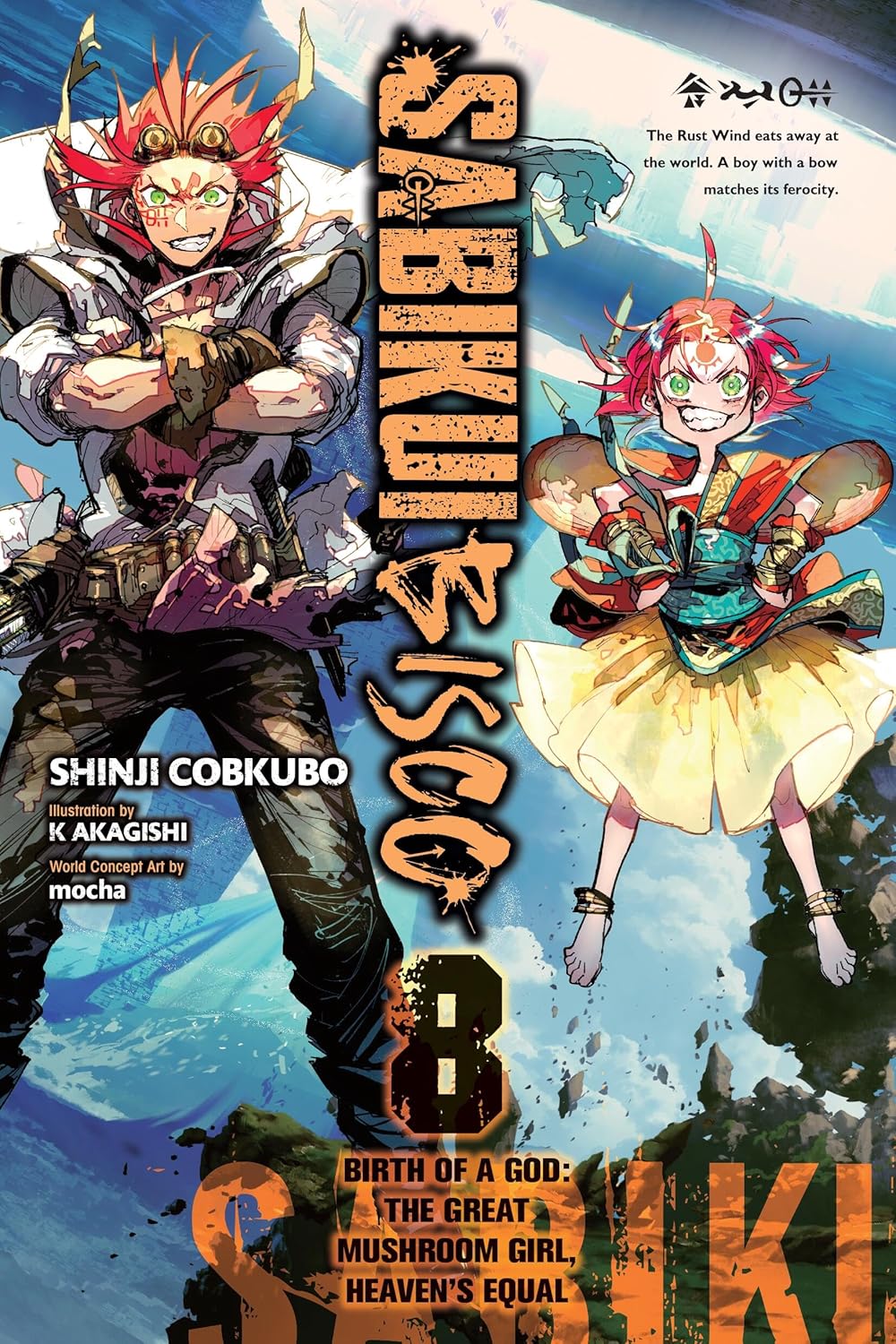By Shinji Cobkubo and K Akagishi. Released in Japan by Dengeki Bunko. Released in North America by Yen On. Translated by Jake Humphrey.
OK, this is starting to irritate me. This is not the first time we’ve had a volume of Bisco that felt like the final volume except that there are clearly more coming, but it’s the first time I felt angry about it, because this really was a fantastic ending. It wrapped up most of the plots we’d had so far, it featured an epilogue that screamed “this is it, I have finished the series”, and it’s also one of the best books in the series. Sadly, after that ending you get the usual “movie trailer” preview that says Book 9 will be BISCOOOO… IN… SPAAAACCCEEE!. Now, this could be quite good, and I’ll definitely be reading it. But I’m getting kinda tired of this author wrapping everything up and then just continuing to roll along. Sometimes series can just END, y’know. In any case, back to Book 8 itself. If you’ve been annoyed by the heterosexuality in this book, particularly Bisco and Pawoo having a kid, boy do I have good news for you. It’s mpreg time, baby!
A mysterious ark, led by someone who looks and acts suspiciously like a United States President (not a specific one, honest, just… in general) is sucking up valuable specimens around the world, which ends up including most of our cast. Meanwhile, Milo has been trying to hide from Bisco that he’s been having mysterious morning sickness. That’s right, when they merged their powers earlier, it led to a magical daughter with Milo as the “mother” and Bisco as the “father”, who they name Sugar. Sugar rapidly grows to be a child from hell, especially when Milo and Bisco are taken in by the ark and made into specimens. Fortunately, she has a cat guardian to help… except she’s not really listening to them. More fortunately, Maria, Bisco’s mother, has shown up to help out… wait, WHAT?!? Wasn’t she dead? And is she really helping?
Maria is easily the best addition to this book, and she’s exactly what you’d imagine Bisco’s mother to be like. Her reasons for faking her death are… well, understandable is the wrong word, but they make sense for the character. I also really enjoyed her scenes with Pawoo, who still doesn’t get a lot to do here, but gets a lot more to do than she has in the last few Bisco books. This includes giving birth, which surprised me. The cover art made me think we’d get a time skip, but no, Sugar just grows up almost immediately. Then I thought we’d get one near the end, as Pawoo was only a couple months pregnant…but we live in magical mushroom country, and we’re also here to fight God, so babies need to be born when it suits them. I also really enjoyed the epilogue, which I don’t want to spoil too much, but I feel may have drawn from the author’s own experience… and also reminds us that, no matter how big a fantasy this is every time, it’s still Japan, not an isekai.
So yeah. Space Bisco. FINE, I guess. In the meantime, this was fantastic, and a great ending to the series.


